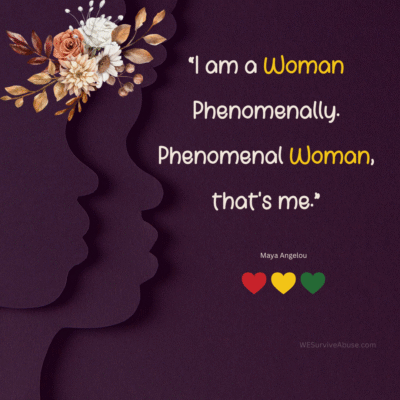We live in a world that too often reduces people—especially women—to parts, features, and functions. This is called objectification: when someone is
 We live in a world that too often reduces people—especially women—to parts, features, and functions.
We live in a world that too often reduces people—especially women—to parts, features, and functions.
This is called objectification: when someone is treated not as a full human being, but as an object to be used, admired, consumed, or controlled.
It’s not always loud.
Sometimes it comes dressed as a compliment.
Sometimes it hides behind tradition.
But the impact is the same: it strips away your humanity.
🧠 What Is Objectification, Really?
At its core, objectification means:
Your body is noticed—but your thoughts are ignored.
Your value is based on what you provide—not who you are.
Your existence is filtered through someone else’s expectations—not your own truth.
It denies complexity.
It denies agency.
It denies you.
🔍 The Many Faces of Objectification
1️⃣ Body Parts Over the Whole Person
When you’re complimented for your curves, skin, or smile—but never your brilliance, humor, or insight.
When admiration is always physical, and rarely personal or intellectual.
When you’re seen, but not truly seen.
2️⃣ Transactional Relationships
When love, respect, or kindness are given only in exchange for beauty, obedience, sex, or status.
When you’re treated like a product with an expiration date, rather than a human being with a soul.
When affection depends on what you give, not who you are.
3️⃣ Erasing Autonomy and Voice
When decisions are made about you, not with you.
When you’re expected to stay in a role—caretaker, mother, muse, servant—even if it doesn’t fit.
When your no is seen as negotiation instead of a boundary.
4️⃣ Sexualization Without Consent
When someone assumes your clothing, body, or presence is for their enjoyment.
When your humanity disappears the moment someone sees you as “desirable.”
When you exist in the world and someone treats that as an invitation.
5️⃣ Disregarding Pain, Story, or Boundaries
When your trauma is dismissed, your voice silenced, your story erased.
When your needs are labeled “too much” or your emotions “too sensitive.”
When people only care about your utility—not your healing.
⚠️ Why Objectification Hurts
Objectification isn’t just rude—it’s dehumanizing.
It teaches you:
That your worth is conditional
That you are only valuable when useful
That being a woman, especially a Survivor, means being consumed quietly and smiling through it
It fuels violence.
It justifies injustice.
It makes healing harder.
And it is not okay.
🌱 Reclaiming Wholeness in a World That Wants You Small
Breaking free from objectification doesn’t mean you reject compliments, relationships, or attention.
It means you refuse to be reduced.
It means:
✅ Speaking up when someone treats you like a product instead of a person
✅ Surrounding yourself with people who see your soul—not just your skin
✅ Calling out objectifying language—in media, relationships, and culture
✅ Affirming your value outside of beauty, usefulness, or submission
✅ Protecting your peace—even when others feel entitled to your parts
🔥 Final Word: You Are More Than What They See
You are not just a body.
You are not just what you can give.
You are a full person: brilliant, sacred, evolving, uncontainable.
And that is worth everything.
✨ Affirmations for Reclaiming Wholeness in a World That Tries to Reduce You
I am not here to be consumed—I am here to be respected.
I am more than what others see. I am more than what others want.
My worth is not measured by my beauty, my silence, or my service.
I was born whole. And no one gets to divide me into pieces.
I do not exist for the pleasure, comfort, or approval of others.
My body is not an invitation. My presence is not permission.
I honor my voice, my story, and my boundaries—even when others don’t.
I am not a role. I am not a label. I am not a thing.
I deserve relationships that value me fully—not just for what I give.
I have the right to be seen as a whole person—with depth, history, and soul.
I will not shrink to make others comfortable. I will not be packaged for consumption.
Every time I speak, I reclaim a piece of myself. Every time I choose truth over performance, I rise.
I am sacred. I am complex. I am powerful.
And I will never again apologize for my fullness.
The Four Pillars of Oppression: Misogyny, Gynophobia, Sexism, and Patriarchy
When Men Define Womanhood: The Power, The Harm, and The Resistance
Naming the Chains: Understanding Misogyny, Gynophobia, Sexism, and Patriarchy